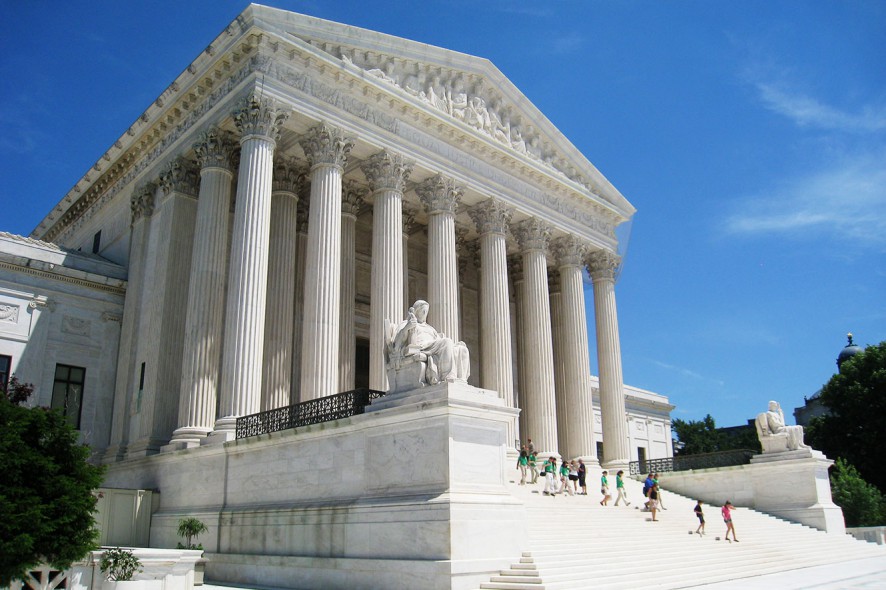Supreme Court of United States: In a defining moment for abortion laws in the United States, the Supreme Court reversed and remanded the decision of the Fifth Circuit Court of Appeal and struck down provisions of Texas House Bill 2, which sought to impose an ‘admitting-privileges’ requirement and a ‘surgical-centre’ requirement, as constituting an ‘undue burden’ upon a woman’s rights to choose and a violation of the Federal Constitution, specifically the Fourteenth Amendment. The judgment was a 5-3 verdict, with Justice Breyer, (who was joined by the others in his opinion), Justice Kagan, Justice Ginsburg (concurring separate opinion) , Justice Kennedy and Justice Sotomayor constituting the plurality, while Justice Thomas (opinion recorded) , Justice Roberts and Justice Alito (opinion recorded, in which Justice Roberts and Justice Thomas joined ) dissented.
The first of the impugned provisions of Texas House Bill 2 required that physicians performing or inducing abortion have active admitting privileges at a hospital not more than 30 miles from the location of the planned abortion, as on the date of the abortion. The second decreed that minimum standards for an abortion facility must equal those under the Texas Health and Safety Code for ambulatory surgical centres. The plaintiffs, which included a few from the earlier Planned Parenthood of Greater Tex. Surgical Health Servs. v. Abbot 951 F. Supp. 2D 891 ruling, sought an injunction exempting two clinics (Whole Woman’s Health in McAllen and Nova Health Centre in El Paso) from the admitting-privileges rule, and all Texan clinics from the surgical-centre rule.
The Court struck down the entirety of these provisions, applying the test in Planned Parenthood of Southeastern Pa. v. Casey, wherein it was held that a statute which, though furthering a valid state objective, effectively places a substantial obstacle to women seeking abortion, places an ‘undue burden’ on the right; neither does it constitute permissible means of the State’s reaching its legitimate ends. The Court accepted the District Court’s factual findings to the effect that H.B. 2 caused the closure of many clinics leaving but 7 or 8 in the whole State, and with such clinics being located significantly far from pockets of women of reproductive age. The Court also did not find that the provisions advanced any protection of women’s health, a legitimate Sate interest after Roe v. Wade, above and beyond the pre-existing litany of laws.
The Court did not accept the State’s contentions of claim preclusion in light of Abbot, holding that changes post-enactment disclosed a new cause of action, to which Justice Alito and others dissented. [Whole Woman’s Health v. Hellerstedt, Commissioner, Texas Department of State Health Services, 579 U.S. ___ 2016 decided on 27-06-2016]







